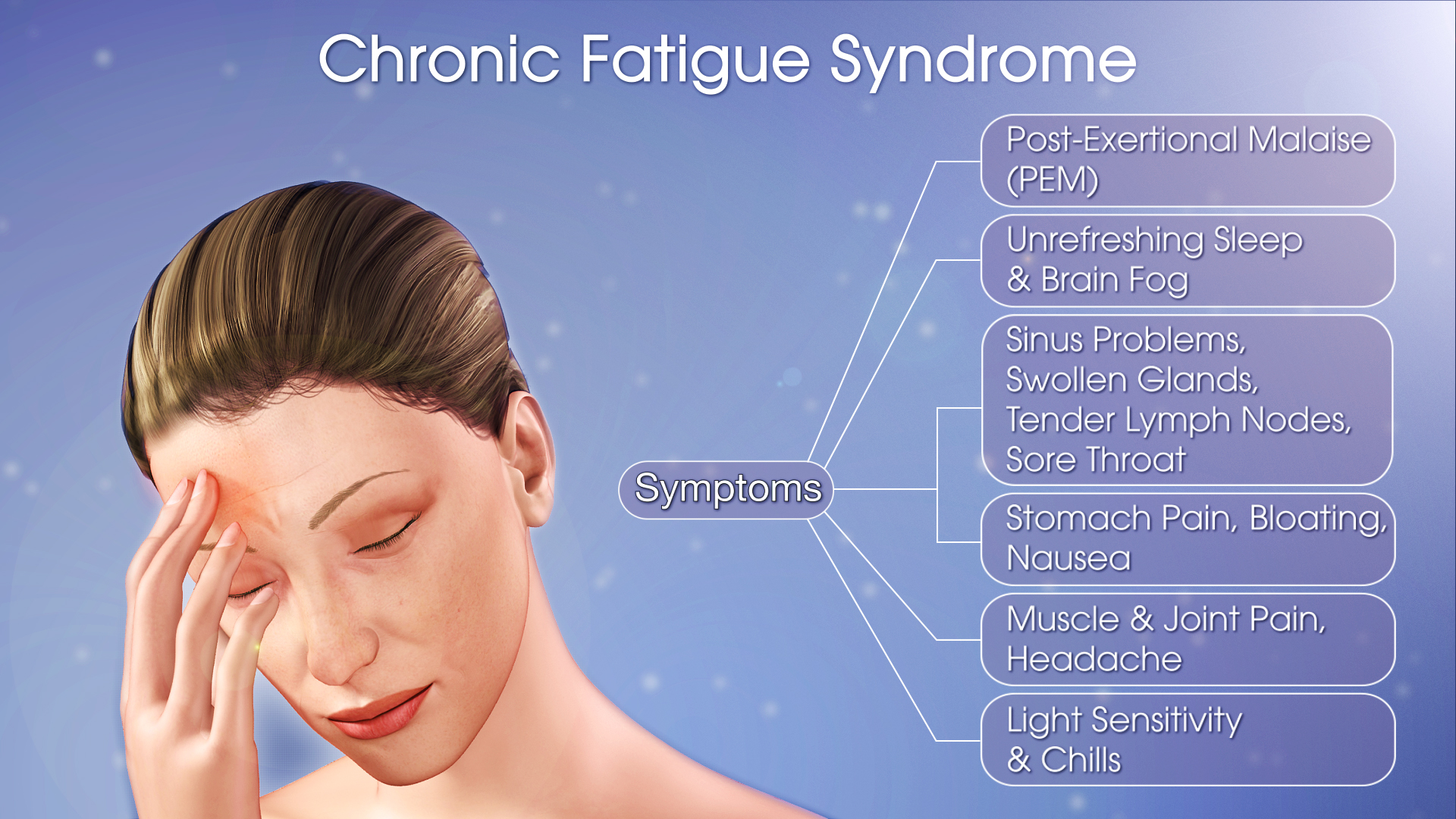Chronic Fatigue Syndrome (CFS) is a complicated disorder in which a person experiences extreme fatigue and tiredness that is not caused by any underlying medical condition and does not go away by resting. It is also known as Systemic Exertion Intolerance Disease (SEID) and Myalgic Encephalomyelitis (ME). The fatigue worsens over a period of time such that the person suffering from this condition finds it hard to complete even simple daily activities at work and home.
Sleeping and resting do not help in CFS. However, the severity of the level of fatigue is not the same throughout, there are flare-ups and remissions, good days and bad days. Even on the good days though, one does not go back to feeling completely normal. This condition can affect anyone, including children and teenagers. It is the most common among women in their 40s and 50s. Around 2.5 million people in the U.S. are suffering from CFS.

Symptoms
Apart from chronic fatigue, there are other signs and symptoms of CFS. They are:
- Severe fatigue that interferes with daily activities
- Loss of concentration
- Poor memory
- Headaches
- Muscle and joint pains
- Sore throat
- Enlarged lymph nodes in the neck or armpits
- Unrefreshing sleep
- Insomnia
- Lightheadedness or dizziness when moving from lying down or standing up from sitting (orthostatic intolerance)
Causes
The specific cause for chronic fatigue syndrome is still unknown. There are a few factors that might contribute towards triggering this condition. These are:
- Certain viral infections
- Hormonal imbalances
- Weakened immune system
- Family history
There are also certain factors that increase the risk for developing CFS. These factors are:
- Gender: Females are twice as likely to develop CFS than males.
- Age: Anyone can get CFS but people in the age group of 40 to 50 years are more prone to it.
- Stress
Treatment
Chronic fatigue syndrome is a very challenging disorder to diagnose because the symptoms of this disorder may imitate the symptoms of many other health problems. First. it is required to rule out any of the other medical conditions that have similar symptoms to conclusively diagnose the condition as CFS.
Unfortunately, there is no specific cure for CFS. Different people may have different symptoms, and different medications and types of treatment may be required to manage the disorder and give some relief from the symptoms. The different types of treatments include a combination of medications, cognitive behavioral therapy, and graded exercise therapy. Alternative medicine techniques such as yoga, meditation, tai chi, and massages may also provide some relief.
Chronic fatigue syndrome is a condition that is hard to live with and changes one’s life drastically. However, with the right type of treatment and certain lifestyle changes, it is possible to reduce the severity of the symptoms.
Disclaimer: The information in no way constitutes, or should be construed as medical advice. Nor is the above article an endorsement of any research findings discussed in the article an endorsement for any of the source publications.








